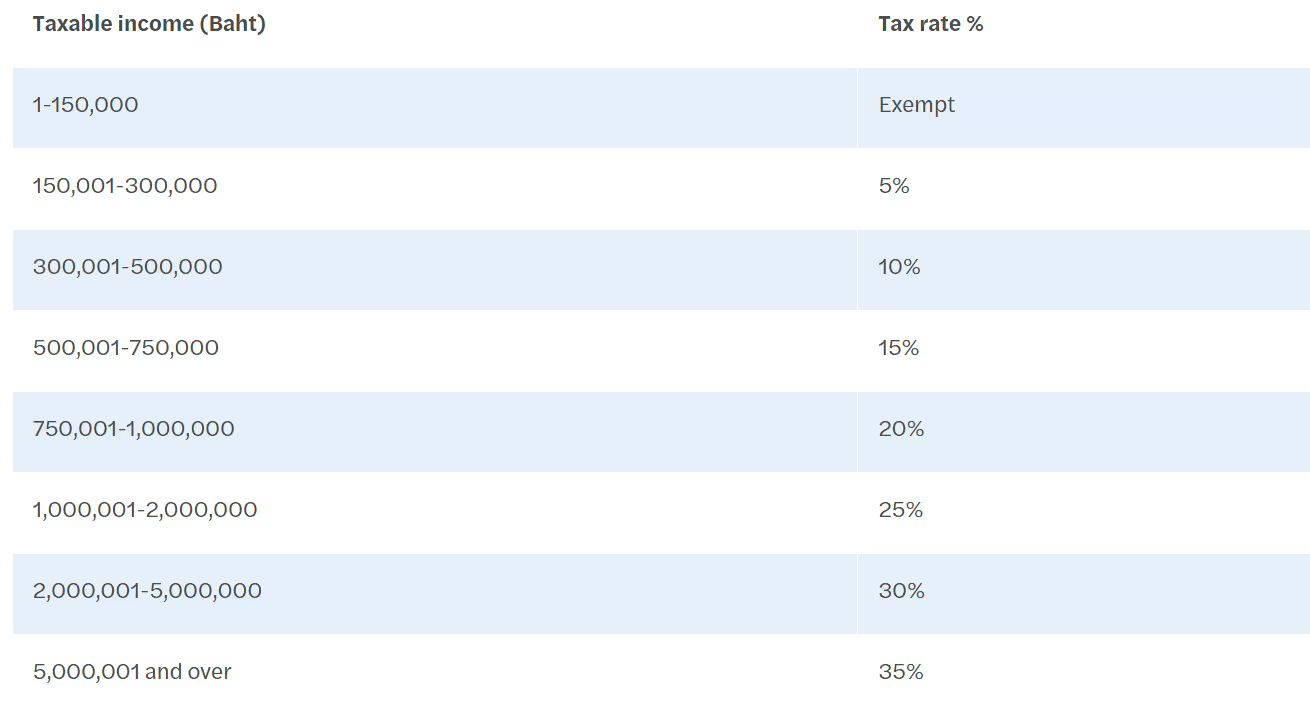.avif)
Calculate Your Crypto
Taxes in Minutes








Thailand has long been hailed as a crypto-friendly nation with lenient tax regulations for resident investors and traders. According to a report published by Statista in 2022, 12% of the Thai population owns or uses crypto, which is the highest in the world when expressed as a proportion of the population.
However, Thai authorities started tightening their grip on crypto investors by the end of 2022, when the Revenue Department released a 32 page detailed guideline outlining the nuances of crypto taxation in Thailand. This comes at a time when Thailand’s global allies are collectively pushing for crypto regulation and investor protection, in wake of the recent black swan events.
The guidelines offered by the authorities cover everything from personal income taxes and capital gains to mining taxes. This article offers a comprehensive summary of these guidelines to help Thai crypto enthusiasts understand the tax implications of their involvement with the asset.
Although crypto is not a legal tender in Thailand, investing, holding, mining, or trading cryptocurrencies in Thailand are considered legal activities. Infact, prior to 2022 resident traders and investors paid zero taxes and the government recognised the potential of crypto in developing the financial infrastructure of the nation.
Thailand is a crypto-friendly nation and although the Thai government had implemented some regulations to oversee cryptocurrency activities, and the Securities and Exchange Commission (SEC) of Thailand played a role in supervising digital asset businesses, the tax rates are fairly reasonable when compared to other countries like Portugal, where taxes on crypto climb as high as 53%.
The simple answer would be ‘Yes’. Tax authorities in many jurisdictions, including Thailand, are increasingly focusing on regulating crypto transactions to ensure compliance with tax regulations.
In Thailand, the Revenue Department has taken steps to regulate crypto transactions. They have mandated crypto exchanges to register with the authorities and adhere to certain reporting obligations.
If investors fail to report their crypto transactions accurately on their tax returns, it is possible for tax authorities to detect discrepancies through various means:
Therefore, if you have plans to hide your crypto transactions from authorities by not reporting them, you might end up in serious trouble.
In Thailand, the taxation of crypto, collectively referred to as digital assets, is overseen by the Thai Revenue Department, offering a clear framework for crypto taxation. Authorities define digital assets as “electronic data or instruments with intrinsic value”, and profits derived from these assets are subject to progressive Personal Income Tax (PIT) rates, with the maximum rate reaching 35%.
The following Income tax rates apply based on total income in Thailand:

The tax structure is organised into five categories of transactions: trading, mining, remuneration, gifts, and return on investment. Individual taxpayers are obligated to report their digital asset income in their annual returns (PND90, PND91) and can utilise withheld tax (WHT) as a credit against their PIT obligations.
Traders/Investors in Thailand can calculate their cost basis using the First In First Out (FIFO) or Moving Average Cost (MAC) accounting methods. Mining, on the other hand, necessitates the use of the FIFO method, with associated costs, such as bills and wages, considered deductible expenses.
When it comes to the sale, transfer, or exchange of cryptocurrencies, any value exceeding the cost of investment is deemed assessable income. The cost of cryptocurrencies can be calculated using standard accounting methods like FIFO or moving average cost, with valuations based on the acquisition time or average price at acquisition.
Losses incurred from one type of cryptocurrency can be offset against profits from others, but this is applicable only for transactions conducted through digital asset operators under the supervision of the Securities and Exchange Commission (SEC). The cost value of cryptocurrencies held at the end of the year is not considered assessable income and can be carried forward to the next tax year.
Furthermore, withholding tax deducted during the tax year can be used as a tax credit when filing personal income tax returns, offering a mechanism for individuals to offset their tax liabilities. In the realm of crypto mining, receipts from mining activities are not considered assessable income at the time of receipt. However, the subsequent sale, payment, transfer, or exchange of mined cryptocurrencies is taxable.
Note that the Royal Thai Government Gazette has introduced an exemption for the transfer of digital assets traded on SEC-approved platforms and digital currencies launched by the Bank of Thailand. This VAT exemption is in effect from April 1, 2022, until December 31, 2023, offering a temporary relief for certain digital asset transactions.
The future of crypto taxation in Thailand appears to be heading towards a more regulated and structured environment, evident from recent guidelines and tightening measures by authorities. The emphasis on tracking crypto transactions, mandatory registration for exchanges, and a comprehensive tax structure indicate a commitment to transparency and compliance. The temporary VAT exemption for specific digital asset transactions suggests a willingness to explore targeted incentives. Thailand's historical crypto-friendly stance aligns with the global trend of formalising tax structures for digital assets, with potential future refinements to address evolving challenges and ensure responsible use of cryptocurrencies.
.avif)



